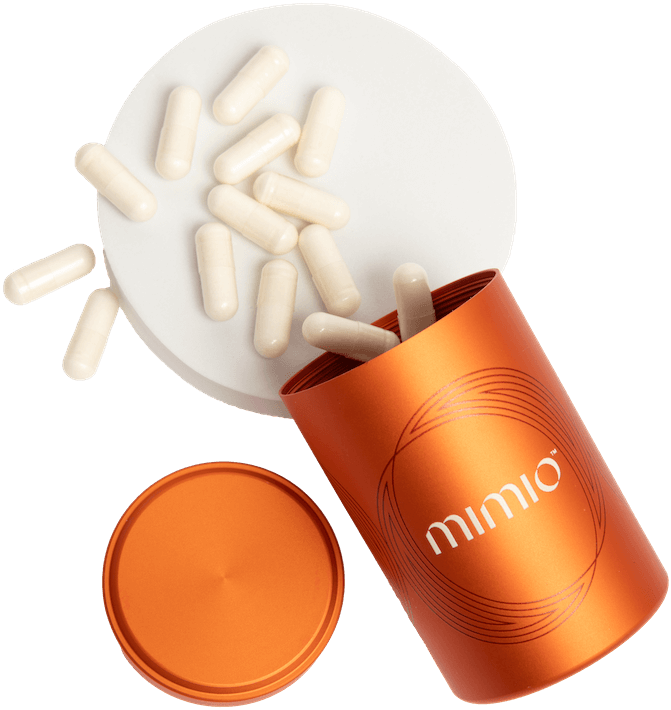1-MNA is a methylated amide of nicotinic acid and a downstream metabolite of vitamin B3 involved in the synthesis and degradation pathway of NAD/NADH metabolism2. 1-MNA is found commonly throughout meat products, especially liver, and is highly concentrated in algae, mushrooms, and seaweed. Once thought to be a mere inert product of B vitamin metabolism, 1-MNA has recently gained attention as a bioactive metabolite with studies showing its ability to induce vasoprotective, anti-inflammatory, antioxidant, and antithrombotic effects primarily through its role in COX-2 inhibition2,14,15. 1-MNA has also been shown to extend lifespan in C. elegans through the induction of cellular antioxidant mechanisms16. While there is no current recommendation for 1-MNA intake, its supplementation may have beneficial effects in treating or delaying cardiac events and decreasing chronic inflammation2,14. 1-MNA has been rigorously tested for safety and tolerability by the European Food Safety Authority and was acknowledged for safety at dosages of up to 270mg/day17.
References
2. Gebicki, J. et al. 1-Methylnicotinamide: A potent anti-inflammatory agent of vitamin origin. Pol. J. Pharmacol. (2003).
14. Chlopicki, S. et al. 1-Methylnicotinamide (MNA), a primary metabolite of nicotinamide, exerts anti-thrombotic activity mediated by a cyclooxygenase-2/prostacyclin pathway. Br. J. Pharmacol. (2007) doi:10.1038/sj.bjp.0707383.
15. Watała, C. et al. Anti-diabetic effects of 1-methylnicotinamide (MNA) in streptozocin-induced diabetes in rats. in Pharmacological Reports (2009). doi:10.1016/S1734-1140(09)70010-6.
16. Schmeisser, K. et al. Role of sirtuins in lifespan regulation is linked to methylation of nicotinamide. Nat. Chem. Biol. (2013) doi:10.1038/nchembio.1352.
17. Turck, D. et al. Safety of 1‐methylnicotinamide chloride (1‐MNA) as a novel food pursuant to Regulation (EC) No 258/97. EFSA J. (2017) doi:10.2903/j.efsa.2017.5001.



